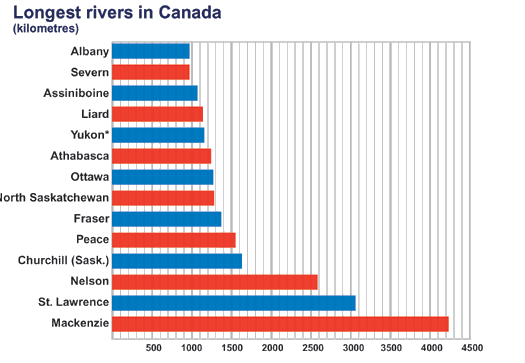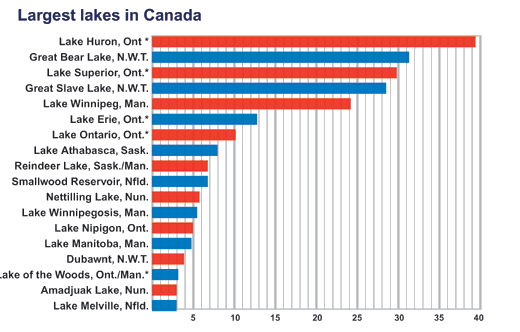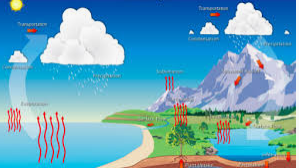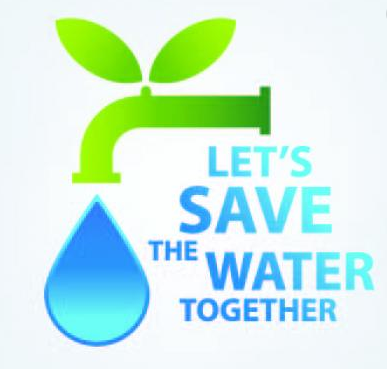Water
Water is an inorganic, transparent, tasteless, odorless, and nearly colorless chemical substance, which is the main constituent of Earth's hydrosphere and the fluids of most living organisms. It is vital for all known forms of life, even though it provides no calories or organic nutrients
What is important of water in human body
Water carries nutrients to all cells in our body and oxygen to our brain. Water allows the body to absorb and assimilate minerals, vitamins, amino acids, glucose and other substances. Water flushes out toxins and waste. Water helps to regulate body temperature.
- Helps your kidneys flush out all that waste.
- Regulates your body's temperature.
- Cushions organs and tissues.
- Keeps your joints nice and lubricated.
- Transports nutrients and oxygen throughout your body.
- Helps keep you regular.
- Keeps body tissues moist.
- Helps keep your skin looking good.
Water resources
Water resources are natural resources of water that are potentially useful. Uses of water include agricultural, industrial, household, recreational and environmental activities. All living things require water to grow and reproduce.
Over 70 % of Earth surface covers with water.
Is Canada a "water-rich" country?
Assessing the "water-richness" of Canada is a complex process involving many geographic, physical, economic, and social issues. Canada's fresh water can be found in the form of rivers, lakes, groundwater, ice, and snow. Considering that on an average annual basis, Canadian rivers discharge close to 7% of the world's renewable water supply, Canada appears to have a generous water endowment. Aggregate measures, however, can be deceiving.
Do you know which are the largest bodies of water in Canada?
Our Canadian rivers and lakes situated north of 60 degrees latitude constitute some of Canada's largest water bodies. The Mackenzie River, for example, is over 4000 kilometres long and is the country's largest river. Great Bear Lake, Northwest Territories, is the world's ninth largest lake (by area). The St. Lawrence-Great Lakes drainage basin is the largest in southern Canada.
(Credit: Canada.ca/environmental & natural resources)
Is the water that flows into the oceans from lakes and rivers wasted?
Not at all. It is an essential part of the global hydrologic cycle. This water is vital to navigation, recreation, fish and wildlife support, and waste dilution, and so sustains the lifestyles of large and small communities. The seasonal fluctuation of high and low flows strengthens a stable relationship among natural forces such as climate, sediment transport, and freshwater discharge to the marine environment.
Water cycle
The water cycle, also known as the hydrologic cycle or the hydrological cycle, describes the continuous movement of water on, above and below the surface of the Earth.
Save Water
Why we need to save water ? We cannot live without water. Saving water helps to preserve our environment. It reduces the energy required to process and deliver water, which helps in reducing pollution and in conserving fuel resources. Saving water now means having water available in the future for recreational purposes, too.
We should adopt some practices, different way of life to save water in our daily routine life, just a one simple tip, turn off the tap when you brush your teeth – this can save approx.. 6 litres of water per minute. Let’s make a practice to save water!!
THANK YOU FOR READING NUTTY BLOG.
Coming soon !
To, learn more about WATER, its chemical compound and polar molecule, which is liquid at standard temperature and pressure. What is Water’s formula -H2O, meaning that one molecule of water is composed of two hydrogen atoms and one oxygen atom.
Nutty Scientists Canada’s program – "SECRET OF WATER" is coming soon for Grade 1, 2 & 3 students. With fun & interactive educational information, our little scientists can learn about water, its scientific formula, understand different properties of water, including surface tension, learning about water cycle and its important. ALL Nutty Scientists Canada’s programs based on hands-on activities and more encouragement to participate so little scientists can learn by doing themselves.
Visit our website at www.nuttyscientistscanada.ca for more info.









Post a comment